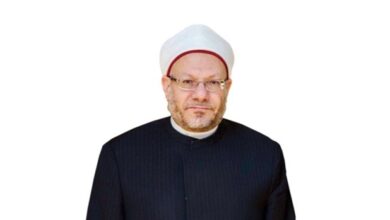The Girl Who Kicked the Hornet’s Nest by Stieg Larsson, translated by Reg Keeland. (Alfred A. Knopf, 2010). David Kamp begins his review of the Swedish author’s third posthumous publication by, rather impatiently, summing up Larsson’s much-repeated personal history: “Larsson was a Swedish journalist who edited a magazine called Expo, which was devoted to exposing racist and extremist organizations in his native land. In his spare time, he worked on a trilogy of crime thrillers, delivering them to his Swedish publisher in 2004. In November of that year, a few months before the first of these novels came out, he died of a heart attack. He was only 50, and he never got to see his books become enormous best sellers — first in Sweden and then, in translation, all over the globe.” The trilogy follows the tale of journalist Mikael Blomkvist and young, “tech-savvy goth” Lisbeth Salander in a literary style that digs deeper than conventional thrillers: “Larsson was a cerebral, high-minded activist and self-proclaimed feminist who happened to have a God-given gift for pulse-racing narrative.” This third book picks up right where the second left off and readers are encouraged to start from the beginning, with Kamp’s assurance that Larsson’s last installment “restores dignity to the franchise.”
The Second Sex by Simone de Beauvoir, translated by Constance Borde and Sheila Malovany-Chevallier (Knopf, 2010). The reissue of French feminist de Beauvoir’s classic study of women restores excised material to bookstore’s shelves. Reviewer Francine du Plessix Gray wonders what role the work, which “examines the reasons women have been forced to accept a place in society secondary to that of men, despite the fact that women constitute half the human race” plays in modern feminist thought today, more than fifty years after it was first published (and largely criticized). Naturally the book seems to be “dated” and many of its extreme sub-arguments tend to undermine the larger point, “yet notwithstanding its misconceptions and frequent obsolescence, The Second Sex retains an awesome majesty and continues to provide many astute insights into women’s lot.” Criticisms of the new translation, which du Plessix Gray finds less streamlined than the original, do not undercut the fact that “one should be grateful that Beauvoir’s epochal work will be drawn to the attention of another generation.”
Nomad: From Islam to America: A Personal Journey Through the Clash of Civilizations by Ayaan Hirsi Ali (Free Press 2010). Hirsi Ali’s second memoir, following her bestselling work Infidel, argues that “Islam creates dysfunctional families.” Raised as a Muslim, Ali left her family and pursued politics in the Netherlands, where her continued critique of Islam has garnered death threats. Nicholas Kristof writes, “Since Hirsi Ali denounces Islam with a ferocity that I find strident, potentially feeding religious bigotry, I expected to dislike this book.” He finds some redemption of Hirsi Ali’s argument in her “focus on education as a remedy.” Nevertheless, “This memoir, while engaging and insightful in many places, exemplifies precisely the kind of rhetoric that is overheated and overstated.”
Science vs. Religion: What Scientists Really Think by Elaine Howard Ecklund. (Oxford University Press, 2010). On an old topic, Rice University sociologist Elaine Howard Ecklund has something new to say, marvels Josh Rosenau. Using a survey of 17,000 university scientists and following up with interviews, she reveals “that scientists often practice a closeted faith.” The apparently false polarization of science and religion undermines scientific progress because religious students are discouraged from studying science. Rosenau applauds Echlund for her fairness and avoidance of polemic, “For Ecklund, the bottom line is recognizing and tolerating religious diversity, honestly discussing science’s scope and limits, and openly exploring the disputed borders between scientific skepticism and religious faith.”




